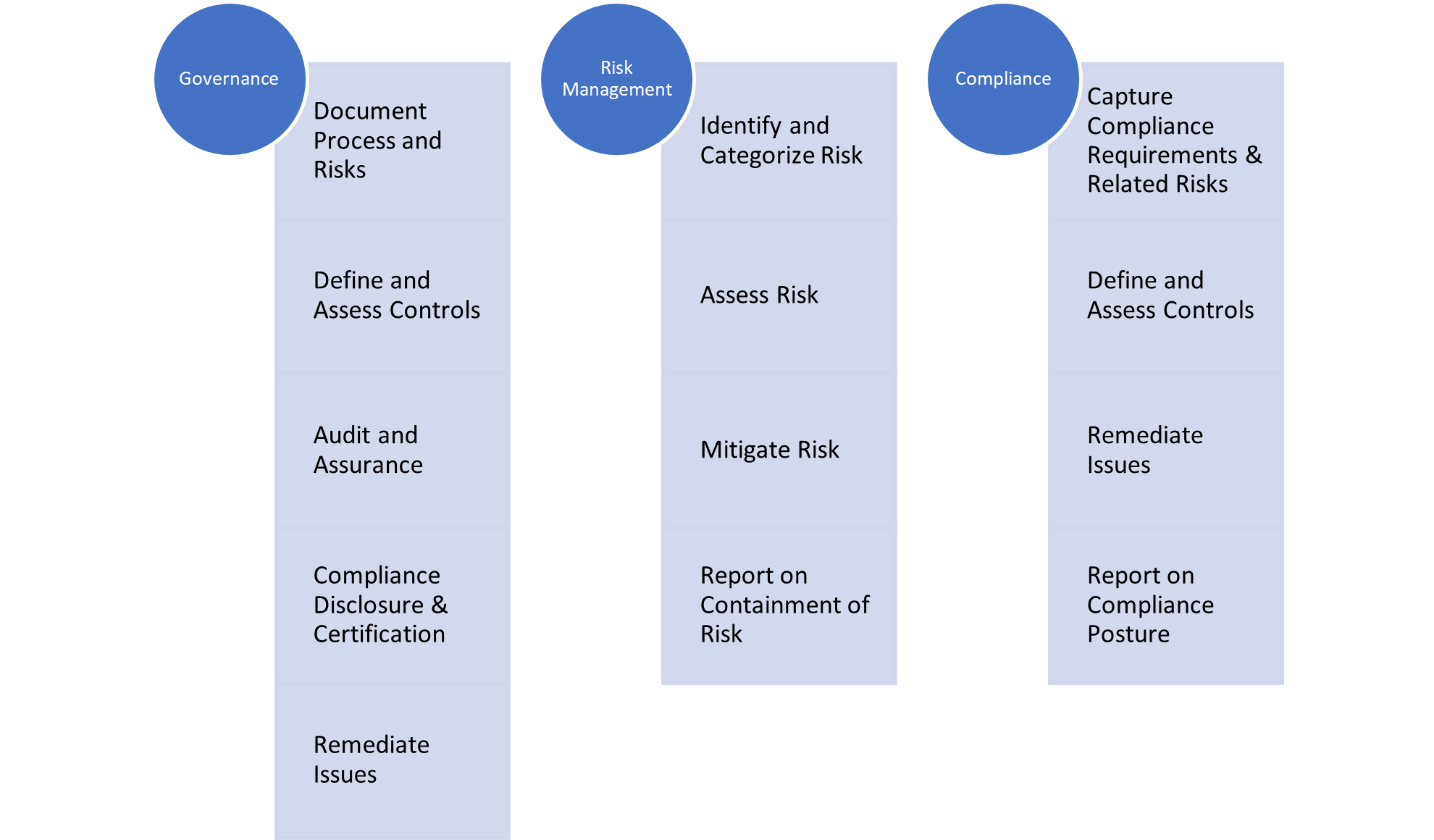Enhancing Compliance Governance:

A Blueprint for Risk Mitigation and Ethical Practice
Compliance governance is essential for organizations to ensure adherence to regulatory standards, mitigate risks, and uphold ethical business practices. By building robust frameworks and structures, companies can effectively manage governance, risk, and compliance (GRC) activities, ensuring long-term success. Regular assessments of operational risks, such as vulnerabilities to phishing, also fall under this important function.
This article explores key areas within compliance governance, highlighting the governance function in compliance, the difference between governance and compliance, and the role of a compliance governance framework. Additionally, it covers the integration of GRC, job roles in the field, relevant certifications, and cybersecurity's place in governance. The article also provides examples of governance risks and emphasizes how effective compliance governance fosters a culture of accountability and integrity.
Understanding the Governance Function in Compliance
The governance function in compliance is vital for developing and maintaining policies, procedures, and controls that ensure regulatory adherence, ethical practices, and industry standards. It encompasses creating a comprehensive compliance framework, defining clear accountability structures, and monitoring compliance activities. Mastering this governance function empowers businesses to better manage risks, improve transparency, and cultivate a culture rooted in integrity.


Differentiating Governance and Compliance: Exploring Their Roles
While governance and compliance are interconnected, they serve distinct functions. Governance refers to managing and overseeing an organization, including strategic decision-making, setting objectives, and policy creation. In contrast, compliance specifically deals with ensuring adherence to laws, regulations, and industry standards. Governance sets the direction and framework, whereas compliance ensures the organization operates within its legal and ethical boundaries.
The Significance of a Compliance Governance Framework
A well-structured compliance governance framework helps organizations manage compliance tasks systematically. This framework outlines essential elements such as risk assessment processes, policy development, communication protocols, training programs, and monitoring mechanisms. It also includes remediation and continuous improvement strategies.
Implementing a compliance governance framework helps organizations identify risks proactively, foster consistency across departments, and demonstrate a commitment to regulatory compliance. Ultimately, it enhances efficiency and accountability in meeting compliance objectives.


Integration of Governance, Risk, and Compliance (GRC)
Integrating governance, risk, and compliance (GRC) activities aims to streamline processes and improve organizational efficiency. By merging these areas, businesses can better assess and mitigate risks, align strategies with compliance needs, and allocate resources more effectively. A GRC approach offers a holistic view, enabling organizations to make informed decisions, boost accountability, and respond proactively to regulatory changes.
Certifications in Governance, Risk, and Compliance
Certifications validate expertise in governance, risk, and compliance and can significantly enhance professional credibility. Various certifying bodies offer courses and credentials in areas like compliance management, risk assessment, and governance practices. These certifications provide a competitive advantage in the job market, demonstrating specialized skills and opening doors for career advancement.


Cybersecurity Considerations in Compliance Governance
In the digital age, incorporating cybersecurity into compliance governance is crucial. Organizations must protect sensitive data, prevent breaches, and adhere to data privacy regulations. A robust compliance governance framework should include cybersecurity measures such as data encryption, vulnerability assessments, secure information systems, and employee training on cyber hygiene. By integrating cybersecurity within governance frameworks, businesses can mitigate risks, protect assets, and ensure regulatory compliance.
The Role of GRC in Fostering Ethical Practices
Governance, risk, and compliance frameworks are critical for promoting ethical behavior in organizations. By setting clear guidelines, assessing risks, and complying with relevant laws, GRC frameworks provide the necessary mechanisms to prevent unethical activities like fraud and corruption. This fosters trust with stakeholders, protects the organization’s reputation, and contributes to sustainable business practices.


Compliance Governance Salary: Factors and Considerations
Salaries in the compliance governance field can vary based on expertise, industry, location, and job responsibilities. Professionals with specialized certifications or advanced knowledge in GRC are typically compensated more competitively. Additionally, organizations that prioritize governance and compliance as key strategies tend to offer attractive compensation packages to secure top talent.
By embracing effective compliance governance practices, organizations can create structured frameworks that mitigate risks, promote ethical behavior, and ensure regulatory adherence—ultimately safeguarding their reputation and contributing to long-term success.
Hackers Never Sleep. Neither Do We.
DUBAI OFFICE
+971-54-565-9528
Digisecuritas Cybersecurity, FZCO 52550-001, IFZA Business Park, Dubai Digital Park, Dubai Silicon Oasis, Dubai, UAE
INDIA OFFICE
+91-8196966161, +91-8194943131
SCO 27, Level-II, Sector 21C, Sector 21, Chandigarh, 160022
